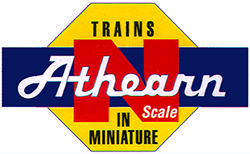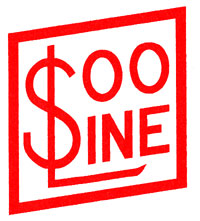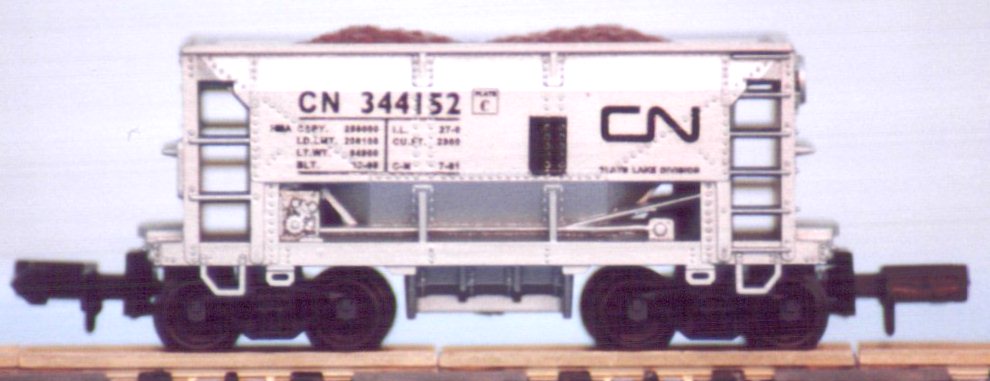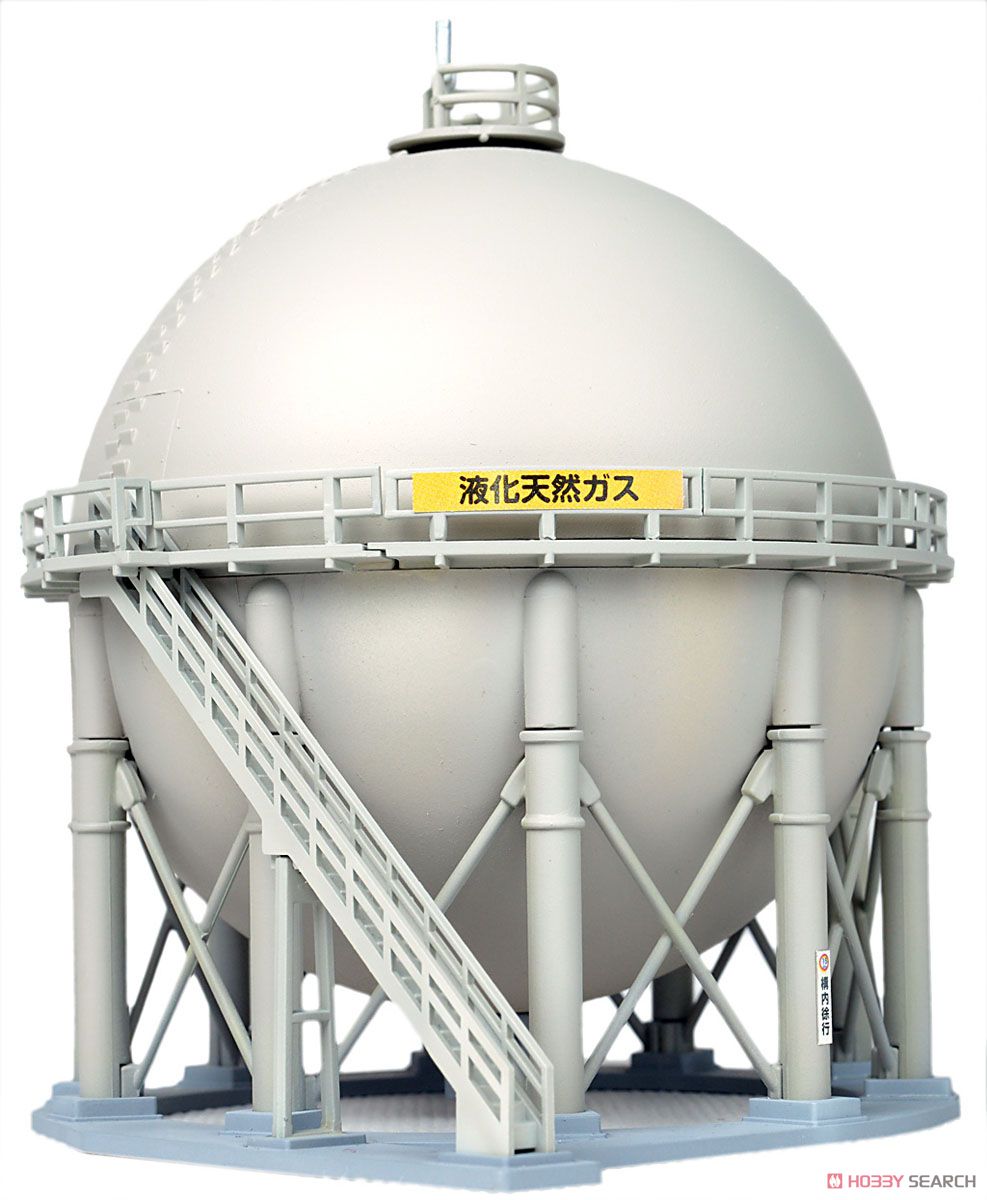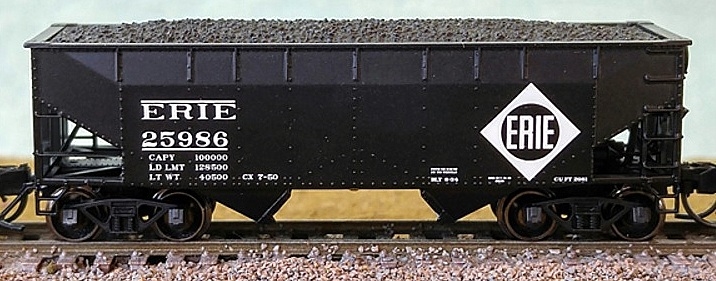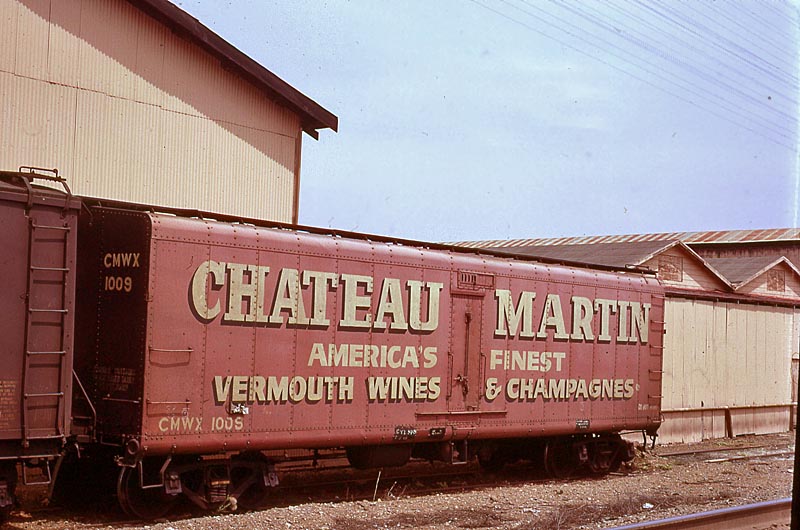Model Information: Features:
Fully assembled and ready to operate;
Separately applied brake wheel;
Screw mounted trucks for accurate tracking;
Truck mounted magnetically operated knuckle couplers;
Plastic wheels.
This model is different than most other N Scale reefers in that it features high speed passenger trucks. This was so that the milk cars could be pulled in passenger consists and reach their destinations before their contents could spoil.
This model is different than most other N Scale reefers in that it features high speed passenger trucks. This was so that the milk cars could be pulled in passenger consists and reach their destinations before their contents could spoil.
Prototype History: In the 1920's, the Pfaudler Company and General American Car Company manufactured hundreds of wood sheathed, insulated milk cars. Designed as bulk milk carriers, the cars were built around two 6,000 gallon glass lined tanks and a brine cooling system designed to keep the milk at a constant 38 degrees Fahrenheit. Riding on passenger car trucks, these unique cars were often painted Pullman green to match the passenger cars of the era. The special purpose Pfaudler Cars hauled bulk milk shipments well into the 1950's.
Road Name History: The Soo Line Railroad (reporting mark SOO) is the primary United States railroad subsidiary of the Canadian Pacific Railway (CP), controlled through the Soo Line Corporation, and one of seven U.S. Class I railroads. Although it is named for the Minneapolis, St. Paul and Sault Ste. Marie Railroad (MStP&SSM), which was commonly known as the Soo Line after the phonetic spelling of Sault, it was formed in 1961 by the consolidation of that company with two other CP subsidiaries, the Duluth, South Shore and Atlantic Railroad and Wisconsin Central Railroad. It is also the successor to other Class I railroads, including the Minneapolis, Northfield and Southern Railway (acquired 1982) and Chicago, Milwaukee, St. Paul and Pacific Railroad (Milwaukee Road, acquired at bankruptcy in 1985). On the other hand, a large amount of mileage was spun off in 1987 to Wisconsin Central Ltd., now part of the Canadian National Railway.
The Soo Line and the Delaware and Hudson Railway, the CP's other major subsidiary (before the 2008 DM&E acquisition), presently do business as the Canadian Pacific Railway, and most equipment has been repainted into the CP's scheme, but the U.S. Surface Transportation Board groups all CP's U.S. subsidiaries under the Soo Line name for reporting purposes.
The Soo Line and the Delaware and Hudson Railway, the CP's other major subsidiary (before the 2008 DM&E acquisition), presently do business as the Canadian Pacific Railway, and most equipment has been repainted into the CP's scheme, but the U.S. Surface Transportation Board groups all CP's U.S. subsidiaries under the Soo Line name for reporting purposes.
Brand/Importer Information: Athearn's history began in 1938, when its founder-to-be, Irvin Athearn, started an elaborate O scale layout in his mother's house. After placing an ad selling the layout, and receiving much response to it, Irv decided that selling model railroads would be a good living. He sold train products out of his mother's house through most of the 1940s. After becoming a full-time retailer in 1946, Irv opened a separate facility in Hawthorne, California in 1948, and that same year he branched into HO scale models for the first time.
Athearn acquired the Globe Models product line and improved upon it, introducing a comprehensive array of locomotive, passenger and freight car models. Improvements included all-wheel drive and electrical contact. One innovation was the "Hi-Fi" drive mechanism, employing small rubber bands to transfer motion from the motor spindle to the axles. Another was the double-ended ring magnet motor, which permitted easy connection to all-wheel-drive assemblies. Athearn was also able to incorporate flywheels into double-ended drives.
The company produced a model of the Boston & Maine P4 class Pacific steam locomotive which incorporated a cast zinc alloy base and thermoplastic resin superstructure. It had a worm drive and all power pickup was through the bipolar trucks that carried the tender. This item was discontinued after the Wilson motor was no longer available, and was not redesigned for a more technologically advanced motor.
Athearn's car fleet included shorter-than-scale interpretations of passenger cars of Southern Pacific and Atchison, Topeka & Santa Fe Railroad prototypes. The company also offered a variety of scale-length freight cars with sprung and equalized trucks. The cars could be obtained in simple kit form, or ready-to-run in windowed display boxes. The comprehensive scope of the product line contributed to the popularity of HO as a model railroad scale, due to the ready availability of items and their low cost.
Irv Athearn died in 1991. New owners took control in 1994, but continued to follow Athearn's commitment to high-quality products at reasonable prices. Athearn was bought in 2004 by Horizon Hobby. Athearn was then moved from its facility in Compton to a new facility in Carson, California. In mid-2009, all remaining US production was moved to China and warehousing moved to parent Horizon Hobby. Sales and product development was relocated to a smaller facility in Long Beach, California.
Read more on Wikipedia and Athearn website.
Athearn acquired the Globe Models product line and improved upon it, introducing a comprehensive array of locomotive, passenger and freight car models. Improvements included all-wheel drive and electrical contact. One innovation was the "Hi-Fi" drive mechanism, employing small rubber bands to transfer motion from the motor spindle to the axles. Another was the double-ended ring magnet motor, which permitted easy connection to all-wheel-drive assemblies. Athearn was also able to incorporate flywheels into double-ended drives.
The company produced a model of the Boston & Maine P4 class Pacific steam locomotive which incorporated a cast zinc alloy base and thermoplastic resin superstructure. It had a worm drive and all power pickup was through the bipolar trucks that carried the tender. This item was discontinued after the Wilson motor was no longer available, and was not redesigned for a more technologically advanced motor.
Athearn's car fleet included shorter-than-scale interpretations of passenger cars of Southern Pacific and Atchison, Topeka & Santa Fe Railroad prototypes. The company also offered a variety of scale-length freight cars with sprung and equalized trucks. The cars could be obtained in simple kit form, or ready-to-run in windowed display boxes. The comprehensive scope of the product line contributed to the popularity of HO as a model railroad scale, due to the ready availability of items and their low cost.
Irv Athearn died in 1991. New owners took control in 1994, but continued to follow Athearn's commitment to high-quality products at reasonable prices. Athearn was bought in 2004 by Horizon Hobby. Athearn was then moved from its facility in Compton to a new facility in Carson, California. In mid-2009, all remaining US production was moved to China and warehousing moved to parent Horizon Hobby. Sales and product development was relocated to a smaller facility in Long Beach, California.
Read more on Wikipedia and Athearn website.
Item created by: gdm on 2017-10-25 20:51:08. Last edited by Alain LM on 2020-05-09 00:00:00
If you see errors or missing data in this entry, please feel free to log in and edit it. Anyone with a Gmail account can log in instantly.
If you see errors or missing data in this entry, please feel free to log in and edit it. Anyone with a Gmail account can log in instantly.



